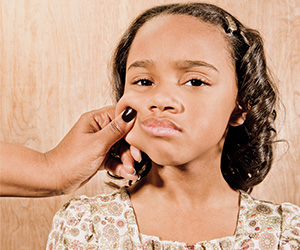Learning to give your child independence means you need to take a step back. Ciska Thurman checks in with an expert
 Sometimes your kids are better off without you. It depends on their age, of course: getting a toddler to walk is different to getting a teen-ager to be independent. The course from hands-on to hands-off parenting is, however, still very important.
Sometimes your kids are better off without you. It depends on their age, of course: getting a toddler to walk is different to getting a teen-ager to be independent. The course from hands-on to hands-off parenting is, however, still very important.
We’re hard-wired to cling on to our children for as long as we can. From the moment we become parents, every instinct is to protect and care for our offspring. But as we continue to teach our kids basic life skills – from feeding themselves to tying their shoelaces or managing their own pocket money – we should intervene less and less in their increasingly independent lives. When the time is right, they will fly out of the nest, and when they do, they should soar and not plummet.
Are you over-parenting?
Helicopter dads on the sports field or tiger moms at home, many modern parents try to put their children in a protective bubble, ultimately enabling their dependence.
‘When we overprotect, we actually disempower our kids,’ says parenting skills coach Angela Hutchison. ‘The underlying message to them is, “You cannot do this on your own; you need me”. When this message is reinforced, a child starts to believe they are unable to do anything for themselves. Later, when the parent finally steps away, the child is completely ill-equipped to live life functionally.’
‘Instead, we want our children to feel that anything is possible for them,’ says Angela – tempered with a healthy dose of realism, of course. ‘As parents, we should seek to create resilient, strong human beings,’ she says. We need to instil in our children the knowledge that they are understood for who they are, and not for who we think they should be. And most importantly, we need to trust them to create their own lives and encourage them constructively when they are hurt or disappointed.
Securing self-sufficiency happens gradually over time. Angela makes the following practical suggestions – for both children and teens.
Mind your language
As a parent, own your emotions and overcome your anxieties instead of pinning them on your child and, as a result, making them feel inadequate. For example, substitute ‘Don’t climb that tree; you’re going to fall’ with ‘I am scared you’re going to fall out of that tree. Remember to hold on carefully at all times’.
Engage your youngster
Cut out any middlemen such as siblings, Facebook or WhatsApp when it comes to communication. Talk with your child often and directly – and no topics are off the table. Try to substitute overly restrictive rules with an open-minded approach. ‘Let’s talk about the dangers of staying out late’ is more engaging than ‘Over my dead body!’
Trust their choices
Learn how to celebrate your child’s individuality rather than seeing them as an extension of you.
For example, practise this cycle: teach good decision-making; be available for advice; allow for independent decision- making; provide unconditional support when poor decision-making happens; reflect on what to do differently next time. This starts with choosing a blue or yellow sippy cup, and after years of rehearsal, hopefully ends with sensible life decisions.
Another take on technology
Another dimension to consider is the constant temptation to over-parent via technology. Sure, having restrictions around your kids’ use of technology is essential, but parents today are drawn into their children’s lives in ways they shouldn’t be.
Consider this: it’s 8 pm on a Tuesday night and your 12-year-old daughter is panicking about tomorrow’s geography test and what it will cover. You happen to be part of a class moms’ WhatsApp group – one simple question posed to the group will make your daughter’s dilemma disappear. Do you?
Fortunately, technology also has a useful self-moderating effect, explains Angela. ‘As soon as kids are exposed to one thing, the internet will satirise it or present the opposite view. We no longer live in a world where if you try to pretend something isn’t there, it will go away.
‘In this day and age, our children can see alternatives at the press of a button. Every viewpoint is available to them. This means they can find their own way a lot more easily. And it also means that we need to be especially prepared to discuss everything and anything with them.’
The dos and don’ts of helping independence happen
Do encourage your teen to volunteer or find holiday employment
Don’t fight their battles or bail them out of every problem they encounter
Do allow your child some space and privacy
Don’t do it all. Your teen must learn to cook the odd meal for the family and use an alarm to wake themselves up in the morning.







